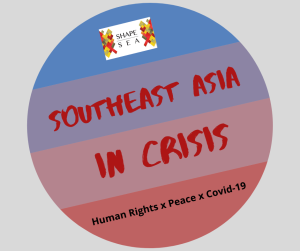SHAPESEA, Aug. 3, 2020
Sophorn TUY
Researcher/Librarian, Center for the Study of Humanitarian Law (CSHL), Royal University of Law and Economics (RULE), Cambodia
The Covid-19 pandemic has affected men and women differently (Durant, 2020). Researchers have been concerned with its impact to gender inequality around the world, particularly the financial impact, since the spread of the disease would exacerbate the amount of unpaid care work done (Promundo, 2020). In fact the research has found that women have experienced higher economic costs than men, but also had a higher risk of losing their jobs whist at the same time having multiple roles to perform (Durant, 2020).
According to the COVID-19 Regional Safety Assessment, Cambodia is ranked number 14 among 20 countries in the Asia-Pacific region (Deep Knowledge Group, 2020). The first positive case of the Covid-19 in Cambodia was officially announced on 27 January 2020 and the number increased to 122 by 12 April. Then after a further month without any cases, the number started to increase in the period of 21 May to 21 July to 197, of which 43 were women. So far, the recovery rate in Cambodia has been 71.07% (MoH, 2020). Most cases originated from people who returned from travel outside the country. To protect social order and citizen’s health, the Law of the State of Emergency was proclaimed on 29 April 2020 in compliance with Article 22 of the Constitutional of the Kingdom of Cambodia.[1] Yet this law has not yet been proclaimed, as the Covid-19 numbers in Cambodian have not yet intensified.
Cambodian Women Garment Worker’s Economic Impacts in Time of the Covid-19
During the Covid-19 pandemic, all schools and universities have been closed. Whereas some state institutions, NGOs and private companies allowed their employees to work from home, some factories closed or suspended operations. In the meantime, for women who have children, they need to take care of them and manage the housework. And there are many workers in Cambodia who have lost their jobs or are expected to lose their jobs(Globe, 2020).

No comments:
Post a Comment